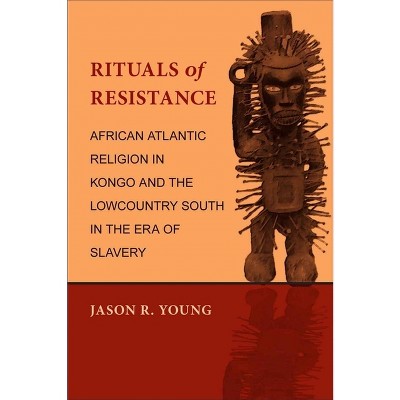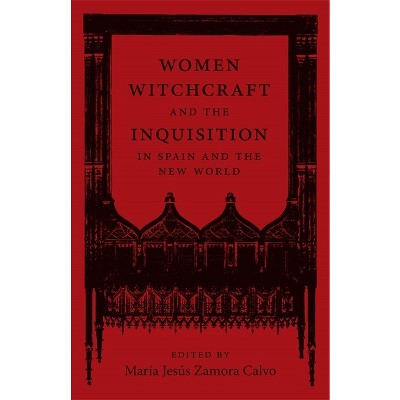Sponsored

A Peddler's Tale - by Kristine Wirts (Paperback)
In Stock
Sponsored
About this item
Highlights
- In 1685, the revocation of the Edict of Nantes made Catholicism the only recognized religion in France and criminalized the practice of Calvinism, throwing the minority Protestant population into crisis.
- About the Author: Kristine Wirts is associate professor of history at the University of Texas-Rio Grande Valley.
- 228 Pages
- History, Modern
Description
About the Book
""A Peddler's Tale" tells the story of Jean Giraud, a Protestant merchant-peddler who lived in the French and Swiss Alps in the late seventeenth century. Drawing on livres de raison (account books), municipal, parish, and consistory records, and death inventories, Wirts has crafted a compelling microhistory about a Huguenot individual and the communities he shared in the wake of the Revocation of the Edict of Nantes in 1685, which made Catholicism the only recognized religion in France. Wirts narrates the historical events in Giraud's French village of La Grave during the revocation, providing a detailed account of the persecution of his fellow church members and their flight across the Alps. Giraud, too, made the difficult trip to Switzerland. Like most refugees, Giraud faced numerous challenges when he arrived at his final destination of Vevey in January 1687. Not all were greeted with open arms. Huguenots without social connections or financial resources frequently were forced to move on; those allowed to stay worked diligently to reestablish their lives and fortunes. Once settled in Vevey, Giraud and his extended family supported themselves by micro-lending and peddling books, watch parts, and lace products (the latter two of growing importance to the proto-industrial economy of western Switzerland). In contrast to past studies on the Huguenot diaspora that tend to depict those fleeing France in heroic terms, A Peddler's Tale exposes the harsh economic realities many refugees faced, as well as the importance of social connections and financial resources in securing passage and sanctuary. Wirts contends that, although a socially diverse group, Huguenot refugees who succeeded in obtaining permanent residency in Vevey shared one important element: many derived their economic livelihood from new kinds of economic ties and social bonds that emerged with the rise of capitalist markets. Commercial networks such as Giraud's helped preserve religious community by extending credit and employment to Huguenot refugees producing or working for the market. Huguenot refugees sought the social approval of their Swiss neighbors through strategies of marriage and godparenthood, and by conforming to Vevey's consistory regulations. A Peddler's Tale illustrates the role and power of informal networks in sustaining and fostering early modern communities"--Book Synopsis
In 1685, the revocation of the Edict of Nantes made Catholicism the only recognized religion in France and criminalized the practice of Calvinism, throwing the minority Protestant population into crisis. A Peddler's Tale personifies these events in the story of Jean Giraud, a Protestant merchant-peddler, and his various communities. Drawing on Giraud's account book; municipal, parish, and consistory records; and death inventories, Kristine Wirts ably reconstructs Giraud's familial, commercial, and religious circles. She provides a detailed description of the persecution of Giraud and his fellow church members in La Grave, France, as well as their flight across the Alps to Vevey, Switzerland. The town's residents did not welcome all refugees equally, often expelling Huguenots without social connections or financial resources. Those allowed to stay worked diligently to reestablish their lives and fortunes. Once settled in Vevey, Giraud and his extended family supported themselves by moneylending and peddling books, watch parts, and lace products.
In contrast to past studies on the Huguenot diaspora that often depicted those fleeing France in heroic terms, A Peddler's Tale exposes the harsh economic realities many exiles faced, as well as the importance of social relationships and the necessity of having financial means to secure passage and sanctuary. Wirts contends that Huguenotrefugees who succeeded in obtaining permanent residency in Vevey shared one important element: many derived their livelihood from the burgeoning economic ties and social bonds that emerged with the rise of capitalist markets. A compelling microhistory, A Peddler's Tale ultimately illustrates the role and power of informal networks in sustaining and fostering early modern communities.Review Quotes
"Kristine Wirts's engaging account of life in the late seventeenth century, A Peddler's Tale: Religious Exile and Community in Early Modern Switzerland, . . . combines a record of [Jean Giraud's] business activities with a description of the persecution he experienced in France and his experiences as a refugee in Switzerland. . . . By approaching these topics through the lens of one man's experience, the book helps readers understand how broader political, social, and economic issues impact the lives of ordinary people."--American Historical Review
"This fascinating, micro-historical account personalizes the Edict of Fontainebleau's traumatic impact on French Huguenots through the lens of the account book (livre de raison) of Jean Giraud, a Huguenot peddler from the village of La Grave in the French Alps. . . . Wirts effectively contextualizes Giraud's personal account while exploring broader aspects of the Huguenot diaspora. Recommended."--CHOICE
"In this precise examination of a Huguenot merchant's account book, Wirts offers fresh insights into the predicament of religious refugees in early modern Europe. The victims of Louis XIV's repression of Protestantism acquire a human voice as a modest peddler becomes the prism through which to understand better religious persecution and forced migration."--Raymond A. Mentzer, coeditor of A Companion to the Huguenots
"Kristine Wirts's carefully researched and vividly written study of the Protestant peddler Jean Giraud exemplifies what microhistory should do. She uses Giraud's life to explore big topics, including the plight of religious refugees, apocalypticism, global networks, the expansion of commercial capitalism, and the development of industrial technology. This book is a wonderful success."--Keith Luria, author of Territories of Grace: Cultural Change in the Seventeenth-Century Diocese of Grenoble
About the Author
Kristine Wirts is associate professor of history at the University of Texas-Rio Grande Valley.Shipping details
Return details
Trending Non-Fiction











